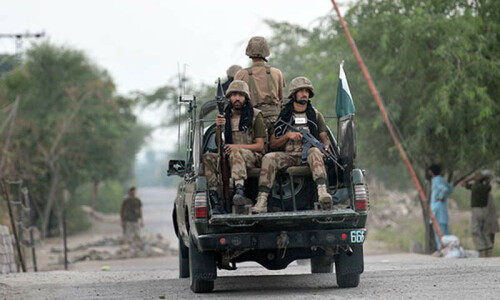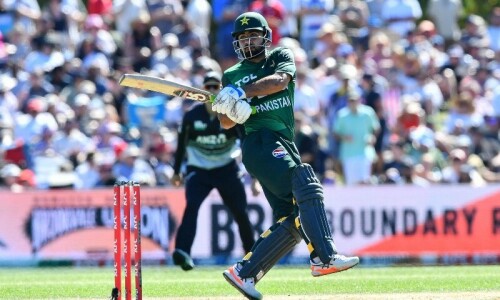I’ve had Roghan Josh once in my life; I vividly remember the unforgettable mehhek and deliciously tender melt-in-your-mouth texture of the meat. My second time was last week when I made the Roghan Josh for this blog.
Lizzie Collingham says in her book Curry, Tale of Cooks and Conquerors:
One of the Mughals’ favorite destinations during the hot summer was the mountainous province of Kashmir. There, they escaped from the unrelenting heat of the plains in enchanting lakeside gardens. The presence of the Mughals encouraged a blossoming of Kashmiri cuisine and it was here that Rogan Josh, familiar to all (from the subcontinent) was perfected.
Rogan Josh originated in Persia.
In Persian, the name implies a stew of meat cooked in butter (rogan means clarified butter in Persian) at an intense heat (josh means hot). In Kashmir, the dish is flavoured with regional spices and these vary according to the religion of the cook. Kashmiri Brahmans are unusual in that they eat meat without any qualms but they do avoid onions and garlic, so their version of Rogan Josh uses fennel seeds (commonly used in Kashmir) and asafetida to flavor the lamb. The Muslim version uses lots of garlic and onion and the dried flower of the cockscomb plant (maval). This is a plant indigenous to Kashmir that produces a furry red flower shaped like a cockscomb. Kashmiri Muslims have a particular liking for this herb and it imparts a bright red color to the food. Some food historians claim that this redness is the source of the dish’s name as roghan in Kashmiri means red.
 |
Roghan Josh has the honour of being among the seven permanent dishes in wazwan (a 36-course ceremonial and traditional Kashmiri feast). The other six delicious gems on the permanent wazwan menu include Rista, Tabak Maaz, Daniwal Korma, Aab Gosht, Marchwangan Korma and Gushtaba.
Wazwan is said to be introduced to Kashmir in the 14th century with the arrival of Timur-e-Lung, during the reign of the Tughlaq dynasty in the region. History tells us the tale of a large migration of skilled artists and cooks to Kashmir from Samarkand, and it is believed that the descendants of those very cooks are the wazas (master chefs) of Kashmir.
The Kashmiri Roghan Josh is made using heeng (asafetida), and therefore has a distinct mehhek (aroma). Collingham says,
The Persian and central Asian influence on Mughlai cuisine is evident in the Ain-e-Akbari recipes. They called for large quantities of saffron, and asafetida, favourite Persian flavourings, and the Mughals cultivated these plants in the subcontinent to provide their cooks with a ready supply. Heeng (asafetida) became popular with the vegetarian population.
It was noticed that when asafatida was fried in butter and oil, it released a garlicky flavour and therefore made a great substitute for onions and garlic, which were avoided by devout Hindus. Hence the use of heeng and its unique flavour and mehhek in the making of Kashmiri Roghan Josh is essential, as is the use of the very lal (red) Kashmiri mirch (chillie) and the aromatic Kashmiri garam masala, which is different from the popularly used Punjabi garam masala.
 |
Cultural Sociology of the Middle East, Asia and Africa: An Encyclopedia edited by Andrea L. Stanton says:
Even though some foods have been made since antiquity, many features of the modern subcontinental cuisine developed in the middle ages. Mughlai cuisine developed during the period when central Asian conquerors introduced saffron, nuts and sealed pot cooking.
The Mughals were heavily influenced by the Persians, and introduced many features of the Persian culture to the subcontinent. Mughlai food is usually served as an elaborate buffet, including dishes such as Pulao, Kebabs and Roghan Josh.
 |
Hence when it came time for me to make Roghan Josh, I asked my friend Monica Kachru, whose in-laws hail from Srinagar and her mother-in-law kindly shared her very authentic Kashmiri Roghan Josh recipe. It turned out deliciously flavourful and fiery red; here it is, from my kitchen to yours.
Ingredients
2 lbs goat meat (preferably leg meat, cut in small pieces)
½ cup oil
2 to 3 bay leaves
2 cinnamon sticks
2 to 3 sabut lal mirch (dried red pepper)
½ tsp level heeng (asafetida)
Salt to taste
12 to 16 oz. yogurt
1 ½ to 2 tsp Kashmiri or Deghi chillie red powder
1 to 1½ tsp level ginger powder
1 to 1 ½ tsp coriander powder
8 to 12 green cardamom
½ to 1 tsp Kashmiri garam masala
2 cups of water
Method
Heat oil and fry bay leaves, cinnamon sticks and sabut mirch for about a minute, adding the meat.
Stir adding salt and asafetida.
Stir until the meat releases water and then dries up; add in a little water, stirring constantly.
Add yogurt and red chillie powder, stirring constantly until the meat is half done (20-25 minutes), adding water as needed; add ginger powder and coriander powder.
Cook until the meat is completely tender (adding a little water if required), sprinkle freshly ground Kashmiri garam masala and cardamom, stir and initiate sealed pot cooking (dum) for 10 minutes.
Deliciously aromatic Roghan Josh is ready to be served.
 |
—Photos by Fawad Ahmed
See more Food Stories here.














































